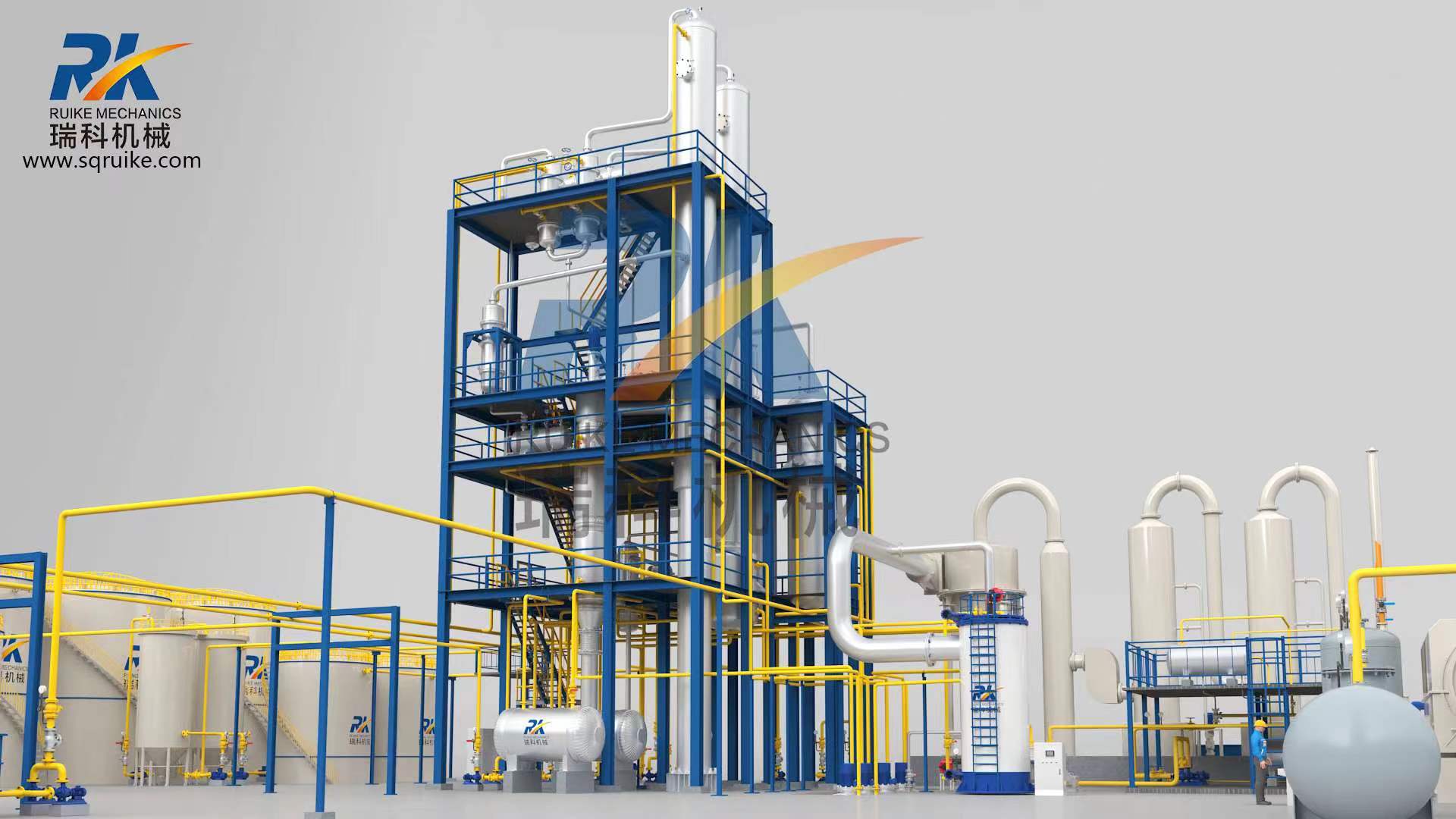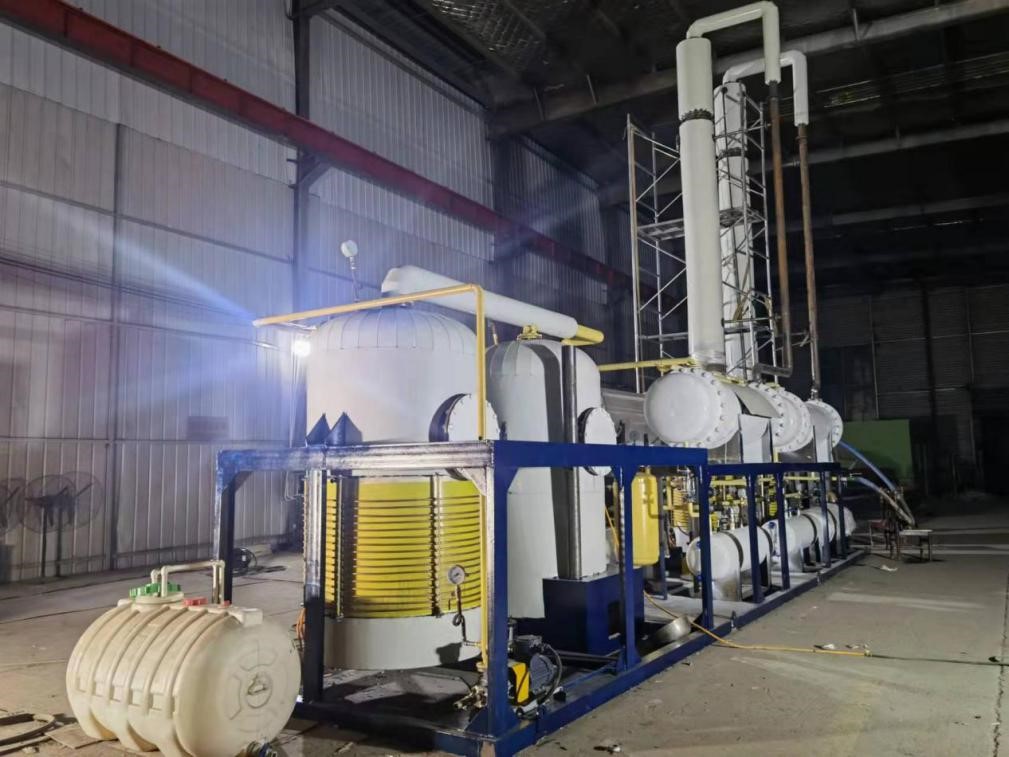
- Home
-
Pyrolysis Machine
- Pyrolysis Machine for Crude Oil 1TPD
- Pyrolysis Machine for Crude Oil 3TPD
- Pyrolysis Machine for Crude Oil 5TPD
- Pyrolysis Machine for Crude Oil 10TPD
- Pyrolysis Machine for Crude Oil 15TPD
- Pyrolysis Machine for Oil Sludge Recycling
- Pyrolysis Machine for Diesel and Gasoline 1TPD
- Pyrolysis Machine for Diesel and Gasoline 3TPD
- Pyrolysis Machine for Diesel and Gasoline 5TPD
- Pyrolysis Machine for Diesel and Gasoline 10TPD
- Pyrolysis Machine for Diesel and Gasoline 15TPD
- Distillation Equipment
- Parts
- Our Projects
- About Us
- Contact Us

Ruike Waste Oil Refining Equipment
Waste Oil
Waste oil refers to any petroleum-based or synthetic oil that has been contaminated with substances such as dirt, metal scrapings, water, or chemicals during use. Sources include industrial processes, automotive engines, and machinery. Improper waste oil disposal can lead to severe environmental damage, contaminating water and soil, and posing risks to human health.
Principles of Ruike Waste Oil Refining Equipments
The refining process involves several steps to remove contaminants and recover usable oil. These processes can be broadly classified into chemical and physical treatments. The goal is to restore the oil to a condition where it can be reused, thus minimizing waste and reducing environmental impact.
Components of Ruike Waste Oil Refining Equipment
- Pretreatment Units: Initial stages where solid impurities and water are removed.
- Heating Systems: Essential for distillation, heating systems elevate the temperature of waste oil.
- Distillation Columns: Central to the refining process, these columns separate oil components based on boiling points.
- Filtration Systems: Used to further purify the oil by removing fine particulates.
- Storage Tanks: For holding raw waste oil and refined oil at different stages of the process.

Waste Oil Refining Equipment
- Pretreatment Units.
- Heating System.
- Distillation Columns.
- Filtration System.
- Storage Tanks.
Pretreatment of Waste Oil
The pretreatment stage is critical for removing large particles and water from the waste oil. Techniques include sedimentation, where gravity separates solids, and centrifugation, which uses centrifugal force to achieve separation.
Heating and Distillation Process
Heating is crucial in waste oil refining, as it facilitates the distillation process. Distillation involves heating the waste oil to high temperatures to separate different fractions. Atmospheric distillation occurs under normal pressure, while vacuum distillation operates under reduced pressure, enabling the separation of components with high boiling points at lower temperatures.
Filtration and Purification
After distillation, filtration systems remove any remaining impurities. Filtration can be achieved through various methods, including mechanical filters, activated carbon filters, and clay treatment. Chemical additives may also be used to enhance purification by neutralizing acidic compounds or breaking down complex molecules.
Advanced Refining Techniques
Modern waste oil refining incorporates advanced technologies to improve efficiency and yield. Membrane technology offers selective filtration, while hydroprocessing uses hydrogen to treat and upgrade the oil. Adsorption methods, employing materials like silica gel, further purify the oil by capturing contaminants.
Efficiency and Yield
The quality of refined oil products, like diesel and gasoline, is an important indicator of equipment technology. Ruike waste oil refining efficiency depends on factors such as the quality of waste oil, the technology used, and operational expertise. Implementing advanced technologies and optimizing processes can significantly increase the yield and quality of refined oil.
Regular Capacity
Regular capacity is from 1TPD-300TPD, we make small-tonnage equipment into skid-mounted type for easy self-installation. We provide professional after-sales guidance and videos to help with installation and equipment operation.
For large-tonnage types of equipment, we send a professional installation team to install and guide the operation of the equipment locally and teach operation and maintenance.

Customized Project
Explore your project plan
We offer you the equipment lists, cost analysis statements, and layout according to your site of regular models.
If you have any special requirements about your project, please contact Nancy, and we will offer you a customized project plan for you.
Ask for tailored Solution
we take a personalized approach to provide tailored solutions that align perfectly with your specific requirements.